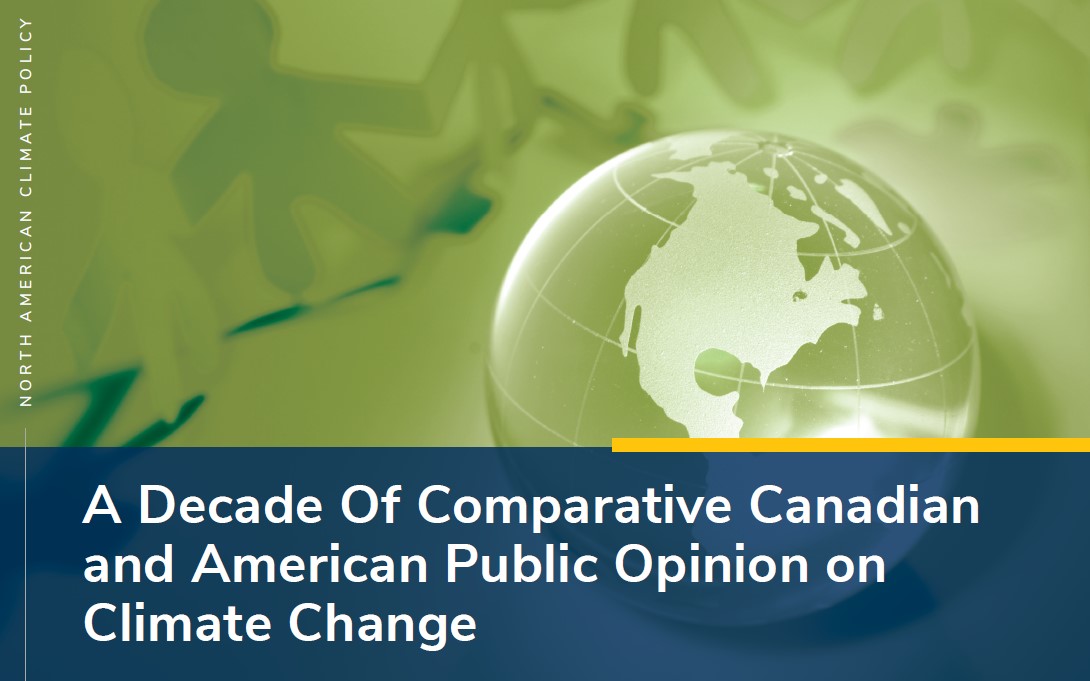This paper is part of the North American Colloquium (NAC), a collaborative venture between the Autonomous National University of Mexico, University of Toronto, and University of Michigan. Established in 2018, the NAC brings together leading academic analysts and practitioners from Mexico, Canada and the United States to address key social and policy issues facing all three countries. Each year, the three partner universities select a theme, and one serves as the host to convene joint activities throughout the year.
A decade of comparative Canadian and American public opinion on climate change
As people around the world increasingly experience the effects of climate change, governments have been slow to enact policies that are consistent with the target of keeping global warming below 2oC agreed upon at the Paris climate talks in 2015. Since being sworn in as President of the United States in 2021, the Joe Biden administration has taken steps to reengage with international climate policy while attempting to reverse the climate policy rollbacks of the previous Trump administration, which all but obliterated Obama era executive efforts to curb greenhouse gas emissions in the U.S.

Key findings
- The public opinion data analyzed in this paper shed light on some of the reasons for recent divergent shifts in policy across the Canada and U.S., including why left-of-center governments have an interest in implementing more aggressive climate and energy policies, and why the U.S. federal government has not seriously engaged with a carbon tax.
- From 2011–2021, American and Canadian public opinion on climate and energy has experienced significant changes, with increased acceptance of the human causes, and moderate increases in support for policy interventions.
- The evolution in opinion has occurred in both countries, but changes are larger in the U.S., where climate change skepticism and aversion to policy actions were more robust at the start of the decade.
- So, while there are still notable differences among Canadians and Americans on climate- related matters, Canadians and Americans are closer in their views on climate change issues than they were a decade ago.
- Overall, we find growing acceptance of climate change and support for climate policy actions among Canadians and Americans.